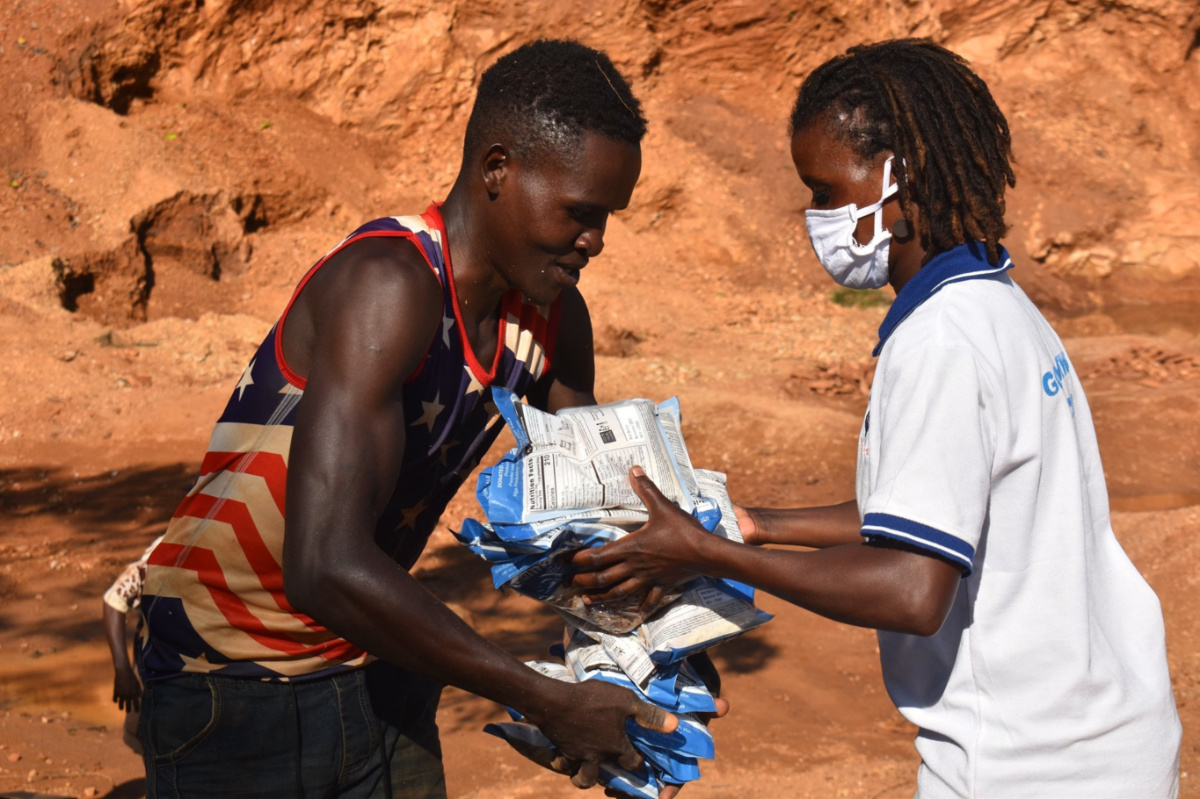
In an article to mark World Food Day, BEN EVANS, CEO of Feed the Hungry Australia, on how each of us can help address the world’s food crisis…
Today is the anniversary of the founding of the United Nations’ Food and Agriculture Organization, an organisation that works with governments to mobilise an international response to disasters on a national level. Celebrated as World Food Day since 1979, it’s a reminder that I really do live in a lucky country and I have an opportunity – well, I would say a Biblical responsibility – to share my bounty with those less fortunate.
This year the FAO wants us all ‘to get involved’ and they have highlighted a few simple things we can do right now, which have a flow-on-effect for us and the world we live in. The FAO are calling for “better products, better nutrition, better environment and a better life for all”.

Delivering food aid in Uganda. PICTURE: Feed The Hungry/Good News Uganda
This is important work because right now they estimate that one third of the food produced around the world today, will actually be lost and never eaten.
It’s tragic that more than 800 million people in the world suffer from chronic hunger. That is a staggering number, that is more than 30 times the entire population of Australia! Can you imagine, 30 of your closest friends right now, going to bed hungry tonight because they didn’t have enough food?
“It’s tragic that more than 800 million people in the world suffer from chronic hunger. That is a staggering number, that is more than 30 times the entire population of Australia! Can you imagine, 30 of your closest friends right now, going to bed hungry tonight because they didn’t have enough food?”
The mental battle would be intense and unrelenting, with no real hope that tomorrow is going to be any better. I have seen that situation all over the world. I’ve met children who literally pray, “Our Father who art in Heaven…give us today our daily bread.”
Yet there are two simple actions you and I can take to help alleviate their problems. Small steps that will have a flow-on-effect to make their lives better.
Firstly, with 14 per cent of food lost in production through inadequate harvesting, handling, storage and transit, you can help by shopping smarter. Just consider – that the cheapest product on the shelf – might actually be doing the most damage to the environment.
By supporting enterprises that practice ethical and sustainable business practices, you will create a flow-on-affect that will benefit the primary producers. Make it a goal that choosing the cheapest choice is only temporary, and not the default choice in your future.
Secondly, that thing you dreaded mum saying at the dinner table growing up is actually true – 17 per cent of food lost globally is simply left-overs, thrown into the trash, because it’s uneaten and unwanted.
So you can help reduce food waste by choosing a healthy diet that also includes whole foods. Whole foods will not only be good for you personally, but the agriculture practises around these sort of products tend to have the least impact on the environment, and are, therefore, better for the primary producer. Even if the product is slightly more expensive, that fact you will consume most of it helps you to value what you consume.
I’m a bit of a sci-fi nerd, and I especially love time-travelling stories. One of the common tropes is the idea that you need to be careful when you go into the past because if you step on a butterfly it could have repercussions that would fundamentally change your present.
Someone quipped on the internet “why doesn’t the ‘butterfly affect’ motivate us to make small changes today, to improve our future?” I think about that a lot now. It’s a profound concept, and an encouragement to me to make the changes I want to see in the world.
Case in point: if we could reduce the food lost in production (14 per cent) and the consumer waste (17 per cent) down to zero today, we could use that extra food to feed two billion people. That’s twice the number of people that are suffering from chronic hunger right now!
It’s an indication that there is enough food in the world, it’s just in the wrong place.
Jesus said in Matthew 5:13 that we are to be the “salt of the Earth”. Now I understand that means I can add flavour to the world around me and, if I think it through, I also remember that salt was used to preserve meats and other foods for the harsh winters.
Consider that in Biblical times, salt was seen as such a precious commodity that it could be used as part of your wage. So you could say that Jesus is asking you to add value to your neighbour, or to put it another way – to find a way to be useful to your neighbour.
I think supporting better business practises and reducing your personal waste are two simple ways you can be useful to your neighbour.

Ben Evans is the CEO of Feed The Hungry Australia.





